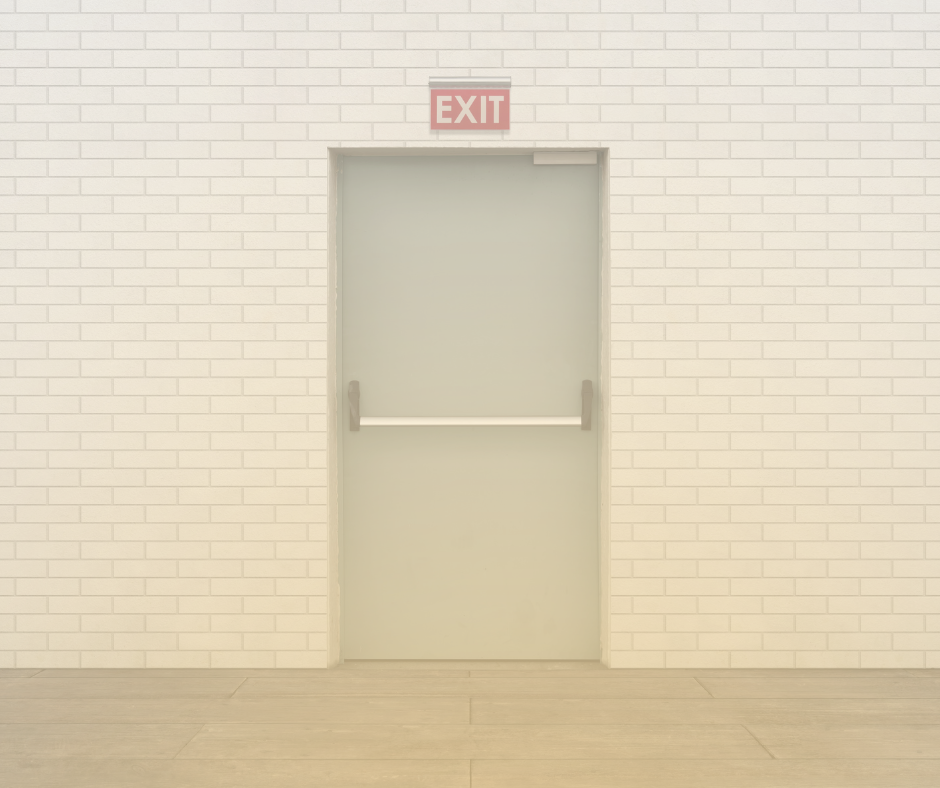Have you ever wondered why, when burnout and suicide rates among medical professionals are so high, no one seems to leave the profession?
We have come a long way in recognizing that burn out rates have reached alarming proportions- we have studied the causes, measured the impact, devised plans to address this epidemic, but not once have we discussed exiting medicine. A quick Google search for “Getting into medicine” yields 3,130,000,000 results, while a search for “Leaving medicine” yields 561,000. You don’t have to be math whiz to understand that the proportion of people who are looking to leave is a a tiny fraction of those who want to get in…0.00018%, to be approximate. The fact that I was able to snap up this domain name for my blog is, in itself, bonkers.
So why is that? Why do doctors never leave? Here are some theories:
Sunk cost fallacy- We spend two decades of our lives training to become the doctor we want to be. Once we land the dream job, we realize a few years later that living the dream is also eating up our soul. We have spent so long training, and we don’t know anything else outside of medicine, so we forge on. Economists call that the sunk cost fallacy. The fact that we spent so much material and human capital to get to this point, doesn’t change the fact that the project has failed. We would actually be encouraged to leave as soon as we recognize this reality, because every minute spent in this situation is a minute wasted in not building our next reality.
We only know medicine- We are are so good at what we do, we therefore convince ourselves that we will never be as good as anything else. I’ve always admired engineers who pivot into finance. Everyone seems to recognize that “engineering brain” allows you to succeed in multiple other fields such as banking, management, and corporate leadership. It never occurred to me that “medicine brain” could be destined for success outside of our profession. Turns out I am wrong.
We become our profession- We are taught since early training that being a doctor is not a job, it is a vocation and a way of life. Somehow, medicine is like a religion, a noble existence that transcends materiality. While, the unfortunate reality is that medicine is like any other job: you study, you earn your letters, you go to work, you earn a salary. In other jobs, however, you have the opportunity to grow, pivot, and continue to evolve. In medicine, that’s it. When faced with the misery of stagnation, we convince ourselves that we need to continue to suffer for the illusion of the greater good.
We have never known risk- It has dawned on me recently that medicine is the least risky career choice among all professions. When you get into medical school, then you forego all risk of failing and being poor. Very rarely do people fail out of medical school, residency, or early practice. As a result, doctors are risk averse people. Our brain understands the following equation: work hard = become a doctor = guaranteed livelihood. Risk is not a variable in this equation. So when we are crashing an burning, and it becomes obvious to us that leaving medicine is not only viable option to remain healthy and happy, we recognize that this is a risky proposition. Since we have never known risk, we turn down the possibility of an exit. We are not alone, research has demonstrated that people prefer to remain in a certain unhappy situation over pivoting into an uncertain possibly happy situation.
Medicine is like Hotel California- “you can check out any time you like, but you can never leave.” Or, so we are told.
B. nerdicus

Leave a Reply